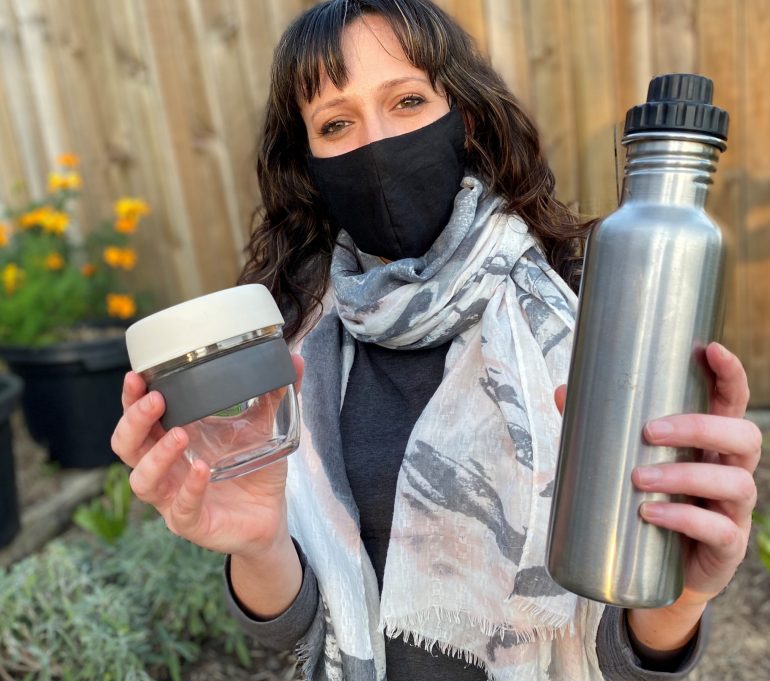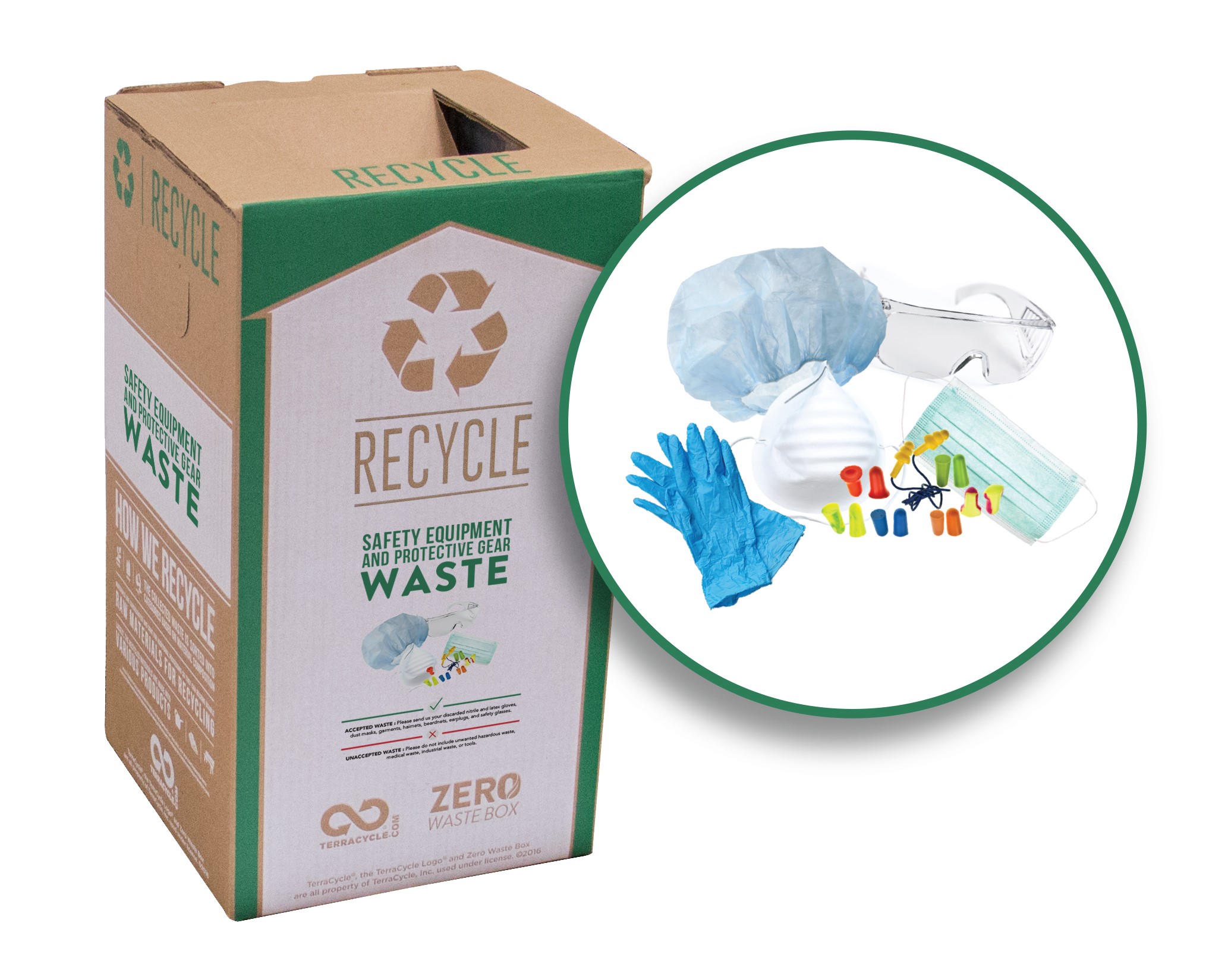Sarah Tosone.
Keeping cast and crew safe on set during the pandemic needn’t come at a cost to the environment, argues Sarah Tosone, a specialist in environmental management across film and TV production, events and festivals.
In 2020, we’ve seen unprecedented bushfires followed by a global pandemic that completely shut down the entire film and TV industry. It has truly been a year of challenges.
As an environmental steward working on large feature films, I am aware of how essential it is to acknowledge the connections between the pandemic, climate change and inequalities in the industry, especially as the industry slowly gets back to work. While new procedures and solutions are being created for this ‘new normal’, it is imperative that we continue making progress in environmental sustainability.
UK research suggests just one hour of television produced creates 13.5 tonnes of carbon dioxide emissions – the equivalent of running three homes with gas and electricity for a whole year. More ecological practices on set can make real difference to the impact production has on the environment.
It has been encouraging to see the Australian screen industry start to play an active role in this space, such as cast and crew using their own reusable water bottles and coffee cups; waste diversion streams on set with a minimum three-bin waste sorting system including composting, recycling and landfill; interdepartmental reusing and repurposing of bulk materials, and incorporating sustainable behaviours and dialogue on-screen. It is critical this momentum continues.
Undoing progress will keep our industry further behind other countries such as the US, UK and Canada who have excelled at staying competitive in this space.
I do believe the majority of cast and crew share these concerns and want to see changes continue, but may require support and guidance in the ‘how’. This is where the environmental steward role is required to work with production and health and safety as a specialised resource. We can ensure new procedures are put into action easily, cost-effectively and safely. This way we can best protect human health and the health of our planet.
Globally, it is concerning there has been an egregious return to single-use plastics in an attempt to minimise the spread of this virus. The significant increase in the amount of disposable items dumped in landfills, along with the increased use of fossil fuels in the production process, is disheartening. Both are contributing to polluting the natural environment even further. These actions are not necessary to protect the community and workplaces from the risk of transmission during this global pandemic. It simply doesn’t have to be this way. There are safe alternatives. In fact, according to a press release from Greenpeace International on June 22, over 125 health experts defend the safety of reusables during the COVID-19 pandemic.
“Based on the best available science and guidance from public health professionals, it is clear that reusable systems can be used safely by employing basic hygiene,” Greenpeace state.
What matters most about reusables is how they are used and cleaned.
The Sustainable Events Alliance (SEA) has been developing best practice hygiene guidelines for the event and venue industry to implement reusables in a consistent and safe manner in a post COVID-19 world. These guidelines will be released to the public soon.
The Green Production Guide, however, has already released film-specific guidelines which are available online for all to use and are a great foundation for environmental film and TV practitioners. The GPG was established in 2010 by the Producers Guild of America Foundation’s PGA Green committee and a group of Hollywood’s largest production companies including Disney, Netflix, WarnerMedia and NBCUniversal.
All recommendations should be used in conjunction with evolving COVID-19 health and safety protocols and live documents released by the screen industry. It’s important to prioritise both safety and sustainability together.
I have included some practical tips and safe alternatives for reducing single use waste on film sets, based on the GPG’s recommendations:
Bring your own
- There is actually a big shift to BYO as it is not only the safest, but most environmental way to alleviate single-use waste.
- If possible, bring two litres of water with you in a bottle or two, which are uniquely yours.
- Where possible, BYO lunch, lunch box, cutlery and bag and take home for cleaning.
Catering
- Buffet-style meals may be a thing of the past, however this could be beneficial for portion control and a reduction of leftovers.
- According to the Australian Screen Production Industry COVID-Safe Guidelines, caterers are still able to use reusable service wear as long as caterers serve food wearing appropriate PPE and all dishes are cleaned in an industrial dishwasher or with full-strength detergent.
- There are growing options available with industrial compost waste collections and 100 per cent compostable packaging. When sent to local compost facilities the material is turned into topsoil after approximately 13 weeks. This could be a viable alternative and can cut waste sent to landfill by 65-80 per cent. Contacting BioPak is a good place to start.
- Sourcing local in season foods and cutting down on meats also helps.
The ‘touch-less pour’
- The Boomerang Alliance and Plastic Free Places are promoting ‘contactless coffees’ in cafes, which allows the use of reusable cups. The cup is placed on a sanitised surface by the customer, with the barista pouring in the ordered beverage without touching, and re-sanitising the surface once the customer removes the cup. Unit departments often now have dedicated baristas who may be able to do this.
Canned water
- Canned water is emerging as a more recyclable single-use solution over plastic. Twist screw top options are also available. Aluminum is infinitely recyclable and accepted in all recycling markets. Wallaby is an Australian company providing natural Australian spring water.
PPE and TerraCycle
- TerraCycle, a social enterprise which offers solutions for hard-to-recycle waste, will collect safety equipment and protective gear through their Zero Waste Box platform. They are still accepting this material during COVID-19 for recycling as they are quarantining all high-risk shipments for 90 days. Designated foot pedal bins, lined and labeled specifically for the disposal of PPE masks and gloves, is a way of collecting this material safely, before sending to Terracycle.
Terracycle can safely recycle PPE through its Zero Waste Box scheme.
These are just a few practical ideas. Changing habits takes time. The screen industry started gaining momentum before the pandemic but it will be devastating if we unnecessarily undo the progress already made. In 2020 with climate change and the global plastic waste crisis, environmental sustainability professionals must be included with the creation of new policies. This issue must be given the priority it deserves. Climate change and the plastics waste crisis aren’t going anywhere.
My hope for the future is to see more cast and crew use their reusable water bottles and coffee cups on set; environmental stewards working on feature films; waste to value and circular economy initiatives explored; composting and investigative recycling becoming the norm; carbon footprint reporting and offsetting; use of renewable energy; ethical procurement, and donations to local charities – to name but a few.
The show can and must go on… but not at the expense of human health and the environment.
An original version of this story appeared in IF Magazine #196 August – September. Subscribe here and take advantage of our limited-time digital offer, which will see you get the next two issues for $2.



